Must Have Important Travel Documents
We’ve all been there, standing in line waiting to get through customs or to check-in. Suddenly, your heart drops, the world goes silent, and panic sets in as you realise you forgot to organise your visa. Customs is now asking for your identification that you can’t find, and you just noticed your driver’s license is different from where it usually is.
If all of that has happened to you before or something similar, this article is right down your alley! There are a couple of ‘must have’ important travel documents that airports require when travelling to different destinations, whether you’re national or internationally bound.
Before going anywhere, the first question you must ask is, ‘What do I need for international travel?’ Everyone’s initial thought will obviously be your passport and your flight tickets. Still, in most cases, countries require a visa to provide details about your plans for visiting.
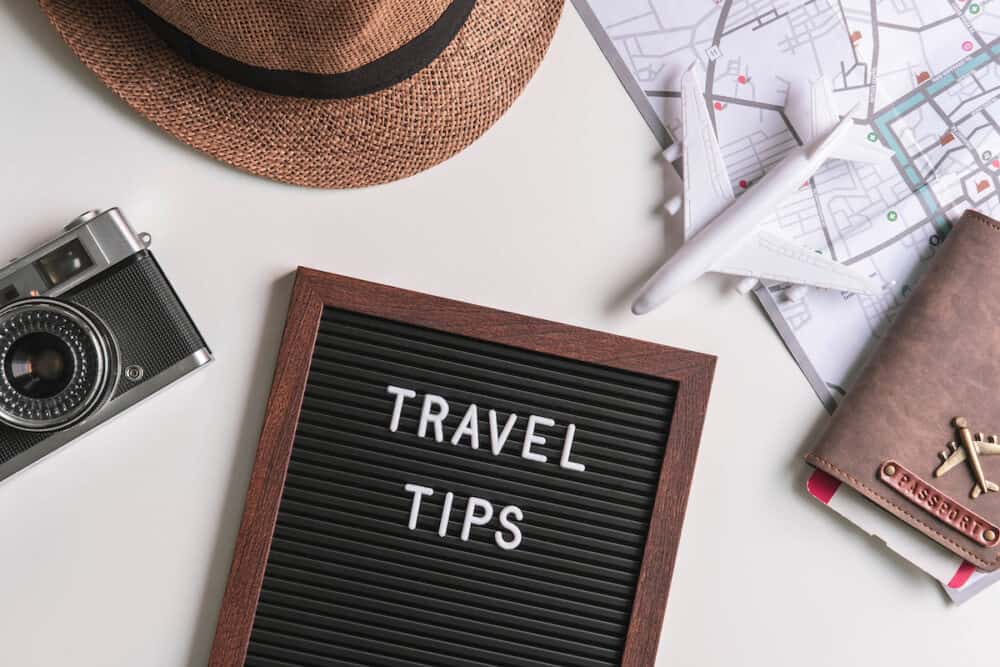
Whether for business or pleasure, governments must identify their intentions to control illegal immigration and manage security concerns and policies specific to their country.
Other travel documents include travel insurance, negative covid tests, medical records, vaccination reports and a couple of others, depending on where you plan to go or where you are from.
Researching and preparing these important travel documents is crucial for various reasons. Apart from providing identification and verification, they are essential to cross international borders. Many countries require them legally, and you will only get far with them.
They assist in security measures and can help you and those around you during medical emergencies. It’s why it is critical to keep these important documents safe, to know exactly where they are and what they do.
Traveling efficiently is key and knowing how to organise your travel documents is one of the best ways to travel efficiently and without an issue. Before you start anything, create a travel document checklist to refer back to whenever you leave abroad.
There are many samples online, or you can create your own, depending on your preferences. The next question you should ask is, ‘How do you carry these important documents?’.
This depends on you, but I always travel with a small bag or backpack holding my visa, passports, identification cards and driver’s license. On the other hand, my papers, such as covid tests, medical reports and letters specifying why you are there, will be in a file with plastic sleeves to keep them neat.

Backing yourself is even more critical because there have been a few too many times when you lose something behind, forget something at home, or something happens at the airport. Having copies of your documents will help prepare you for the worst.
The final question is, ‘What documents should I have when travelling internationally?’ All of them! You never know. One of the best moves I have ever made is placing certain documents in all the bags I have.
Keep copies of your passports on you, but duplicates of your ID and driver’s license can assist security or whoever finds your items in helping you get them back – especially in situations like lost luggage. I ensure there is contact information in everything because losing your things is the worst.
At the end of the day, making sure you have everything, knowing where they are, what they do and backing yourself for any unfortunate circumstances really goes a long way and gives you an incredible feeling of comfort and certainty that if anything were to happen, you would be okay.
Nothing will prevent you from your next adventure. If you are still left wondering ‘what are the necessary documents needed to travel abroad’, then I am here to help you every step of the way. Below is a list of travel documents that are a necessity to have when travelling anywhere:
Plan your trip
Save on fees abroad with the Wise Card—use it at ATMs, restaurants, and for flights or hotels in over 150 countries. Manage 40+ currencies in real-time with the Wise app.
Need Help Planning?
- Cheap Flights: Find the best deals.
- Accommodation: From hostels to luxury stays.
- Car Rental: Affordable options worldwide.
- Sightseeing Tours: Explore without breaking the bank.
- Travel Adapter: One adapter for all your needs.
- Travel Insurance: Don’t risk it—stay covered.
This post includes affiliate links. Read my full disclosure and content policy.
Driver’s License, Passport (ID)
A driver’s license is an official document issued by a government authority that permits you to operate a motor vehicle on public roads after passing different tests. It is required to legally drive a car and is a form of identification.
While a driver’s license is not an essential travel document, it can be helpful as a secondary form of identification while travelling. For example, some car rental agencies require a valid driver’s license, which can serve as additional proof of identity in certain situations.
A passport is an official government-issued travel document that certifies your identity and nationality. It is essential for international travel and is used to gain entry into foreign countries.
They also serve as a means of protection in helping you seek assistance from their country’s embassy or consulate while abroad. They are the primary identification for your international travel documents.
They are necessary for crossing borders, clearing immigration and customs, and verifying your eligibility to enter a foreign country.
Additionally, passports are required for booking flights, checking in at hotels, and various other travel-related activities. Ensure you have a valid passport with a minimum of 6 months validity.
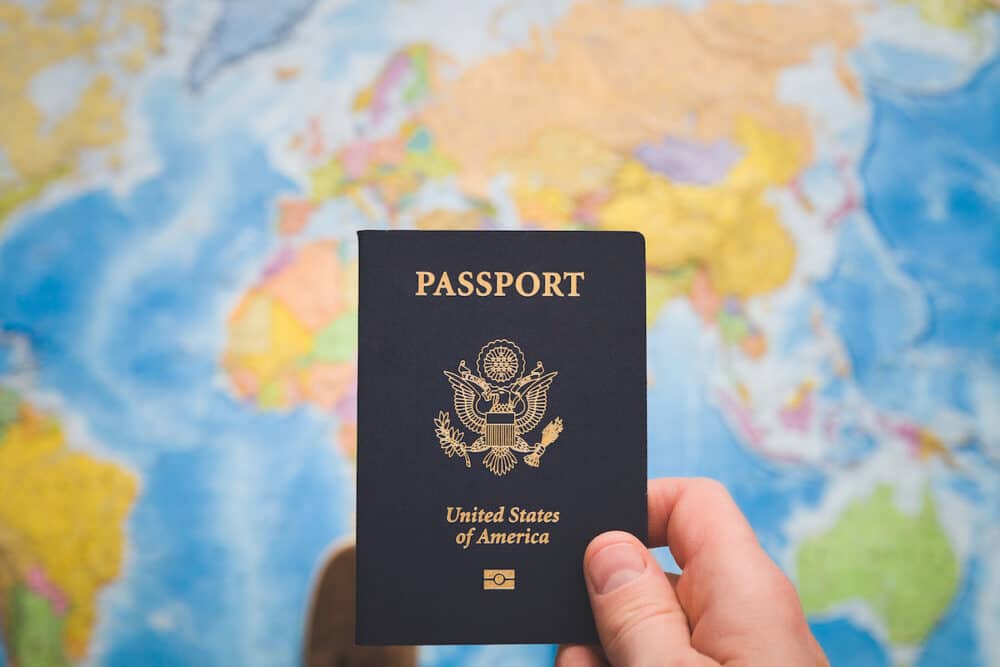
Travel Visa
A travel visa is an official authorisation issued by a foreign country’s government that allows a traveller to enter, stay, or pass through that country for a specified period and purpose.
Visas are typically stamped or attached to a traveller’s passport and contain important information such as the traveller’s name, passport number, dates of validity, and the specific conditions of the visa.
Travel visas are essential because they regulate and control the entry of foreign nationals into a country. Different types correspond to varying travel purposes, such as tourism, business, study, or work.
Having the appropriate visa ensures that you are visiting the country for the intended reason and adhering to the country’s regulations. They also specify how to stay in the country because overstaying your visa could result in fines, deportation, or legal consequences.
They help immigration and border control authorities monitor and manage the flow of travellers in and out of the country.
Having a valid visa can make it easier for government officials or consular services to assist or support you during emergencies or unforeseen circumstances during your stay.
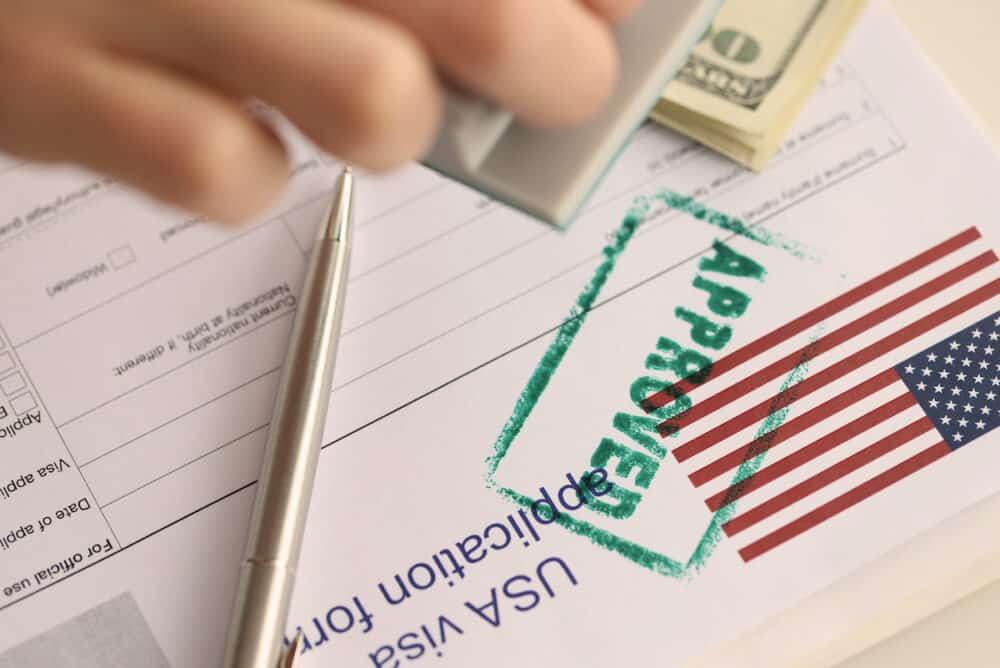
Copies of all identification documents (in case you lose your ID passport etc)
Making copies of all your travel and identification documents is an essential precautionary measure that can provide many benefits and safeguards during your travels. While they aren’t a substitute for the originals, they provide an added layer of security and preparedness that can be invaluable in unexpected situations.
The possibility of these documents getting lost or stolen is high; having copies could be a lifesaver. If they are stolen, copies prevent you from getting stuck in difficult situations and provide proof of identity.
If you lose them, these copies can help others track you down more efficiently and help quicken the process of retrieving your items. Duplicates assure a faster replacement and provide assistance in emergency situations.
Sharing copies with friends and family can help with replacements and communication if they cannot reach you.
When taking copies of your travel documents with you, consider storing them separately from your original documents. You’ll still have access to the other if one set is lost or stolen.
Use a travel document organiser, a plastic sleeve, or an envelope to keep physical copies safe and organised. Save digital copies in a password-protected or encrypted folder. As easy as it is, try avoid saving them directly on your device if lost or stolen.
Travel Insurance Plan Details
Having your travel insurance plan details with you when you travel is essential for various reasons. Travel insurance provides financial protection and assistance in different situations during your trip.
Situations like medical emergencies are high on the list of unfortunate events that can happen. Your insurance plan details can cover medical expenses, hospitalisation, and even evacuation.
It can reimburse you for non-refundable trip costs if you need to cancel or cut short your trip due to unexpected circumstances such as illness, injury, or family emergencies.
Suppose your luggage is lost, stolen, or delayed by the airline. In that case, your travel insurance can cover essential items you need while waiting for your baggage. Suppose your travel is delayed due to unforeseen weather-related issues or airline strikes.
In that case, your insurance can reimburse you for additional expenses such as accommodation and meals. Travel insurance can cover your beneficiaries or yourself in unfortunate accidents resulting in death or severe injury.
Travel documents like a passport or driver’s license get lost or stolen, and travel insurance can help cover the costs associated with getting replacements and assist you in managing the situation.
Review your travel insurance certificate and plan in detail before you leave. It can help you understand your policy’s coverage limits, exclusions, and terms. This enables you to make informed decisions and know what to expect in case of a claim.
Keep digital and physical copies of your plan details and consider sharing them with a trusted family member or friend back home so they can assist you in an emergency.
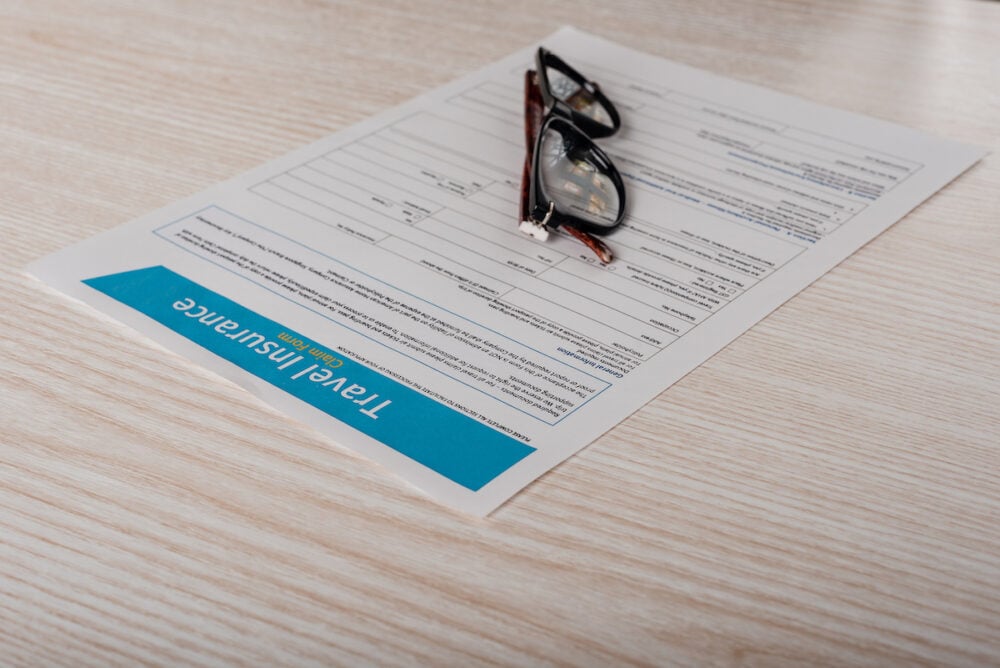
Travel Itinerary (including flights and hotel confirmations)
A travel itinerary is a detailed plan that outlines the various aspects of your trip, including transportation, accommodations, activities, and essential contact information. A well-organised travel itinerary can provide numerous benefits to help you navigate your travels more effectively.
The first significant benefit falls under organisation; a travel itinerary helps you keep all your trip details in one place, allowing you to easily access information about everything. Planning your trip efficiently and in advance enables you to make the most of your time there, allowing you to experience as much as possible.
It helps you allocate time for each activity or destination, ensuring you get all the benefits you want to share. Suppose you’re moving between multiple destinations or using various modes of transportation. In that case, a travel plan provides a clear roadmap for your journey.
You can better manage your travel budget and avoid overspending by including estimated costs for each activity and expense in your itinerary. Lastly, an itinerary can serve as proof of your travel plans, which can be helpful when checking into accommodations, showing your travel plans to immigration officials, or dealing with tour operators.
I love travel plans since they reduce travel-related stress, providing a sense of direction and control over your trip. Creating an itinerary has become more accessible in today’s digital age. You can use various travel apps, websites, and tools to build, store, and access your travel itinerary details on your smartphone or other devices.
Tickets for tours or flights
Flight tickets are your entry passes to board an aeroplane. You won’t be allowed to check in and board your flight without a valid ticket. Similarly, tickets for tours, attractions, or events grant you access to those experiences.
They provide proof that you have made reservations, help verify your plans and ensure that you receive the services you’ve booked.
Some countries or destinations may require proof of onward travel, such as a return flight ticket, as part of their entry requirements. It is guaranteed availability when you book a ticket that secures your spot on a tour, flight, or activity.
Travelling frequently involves a series of interconnected activities, and having tickets for each component of your itinerary helps ensure a smooth process between them.
If there are any discrepancies or issues with your bookings, having your ticket details allows you to communicate effectively with the service provider or organiser to resolve the problem.
Suppose your flight or tour is cancelled or rescheduled. In that case, a ticket makes discussing alternatives with the airline or tour operator easier. You can use your ticket information to explain your situation and make necessary adjustments.
Suppose your plans change or unforeseen circumstances arise. In that case, having your tickets is crucial for processing refunds, changes, or insurance claims related to your bookings. A ticket allows authorities, travel partners, or assistance services to better understand your plans and situation in emergencies.
While digital copies on your smartphone can be convenient, it’s good practice to have physical printouts or backup options in case of device issues or connectivity problems.

Immunizations/Vaccination for Travel (needed for some countries)
Immunisations and vaccinations for travel are essential because they help protect you from certain frequent diseases in the regions you visit.
Travelling exposes you to different environments, climates, and disease risks; some of these diseases may not be common in your home country.
It’s essential to research the recommended and required vaccinations for your destination and consult with a healthcare provider or travel medicine specialist well before your trip to determine which vaccines are necessary for your travel plans.
Immunisations provide protection against diseases that can be life-threatening or cause serious health complications.
By getting vaccinated, you reduce the risk of contracting diseases that are prevalent in the destination you’re travelling to. They play a role in preventing disease outbreaks both at your destination and back in your home country.
Vaccinations ensure your own health and well-being during your trip. They help you avoid getting sick and needing medical attention while away from home. Some countries require specific vaccinations as a condition of entry.
Proof of immunisation may be necessary to obtain a visa or to clear immigration checkpoints. Healthcare facilities and standards can vary widely from country to country, and vaccinations provide additional protection if you encounter a health issue in a location with limited resources.
Some travel insurance policies may require you to be up-to-date with certain vaccinations to provide coverage in case of illness or medical emergencies. Being vaccinated gives you peace of mind, allowing you to enjoy your travel experiences without worrying about health risks.
Letter from doctor for medication along with your prescription
Having a letter from a doctor and your prescription medication is necessary when travelling for many reasons, especially if you’re carrying prescription medications or medical devices. This letter documents that you have a legitimate medical need for your medications.
Some countries have strict regulations regarding the importation of certain medications or substances, and letters explain the medical necessity of the medicines you carry. Prescription medications without proper documentation can lead to misunderstandings or legal issues in certain countries.
It provides proof that the drugs are prescribed to you by a licensed medical professional. In case of a medical emergency or needing medical attention while travelling, having a doctor’s letter can provide healthcare professionals with important information about your medical history and prescribed medications.
Airports and transportation hubs often have strict security measures, and you may need to explain the presence of drugs and medical devices to security personnel without unnecessary delays.
If you need to make a travel insurance claim related to medical issues, having a doctor’s letter can substantiate your need for medical treatment and prescribed medications.
COVID-19 Travel Documents
Slightly different to all the documents for international travel mentioned above, covid-19 cards are less necessary.
Now that the pandemic has calmed down, most countries don’t require confirmation of your covid vaccine or a medical test. Still, you never know what anyone may ask, and it could be more beneficial to bring one along just in case.
Some countries still have specific entry requirements in response to the COVID-19 pandemic. These requirements can include proof of vaccination, negative COVID-19 test results, or quarantine mandates. COVID-19 travel documents help protect public health and safety by providing information about your vaccination status or recent test results.
This information is crucial in preventing the spread of the virus and its variants. Some airports, airlines, and border control authorities may still conduct health screenings upon arrival. Some accommodations, attractions, or services may require proof of COVID-19 status before providing their services.
In case of any medical emergencies or if you need healthcare while travelling, having your COVID-19 documents can provide valuable information to healthcare professionals. If you are exposed to COVID-19 during your travels, your travel documents can assist in contact tracing efforts.
Make sure to research the entry requirements of your destination well in advance and ensure you have the necessary documents, such as vaccination cards, test results, health declarations, or any other forms required.
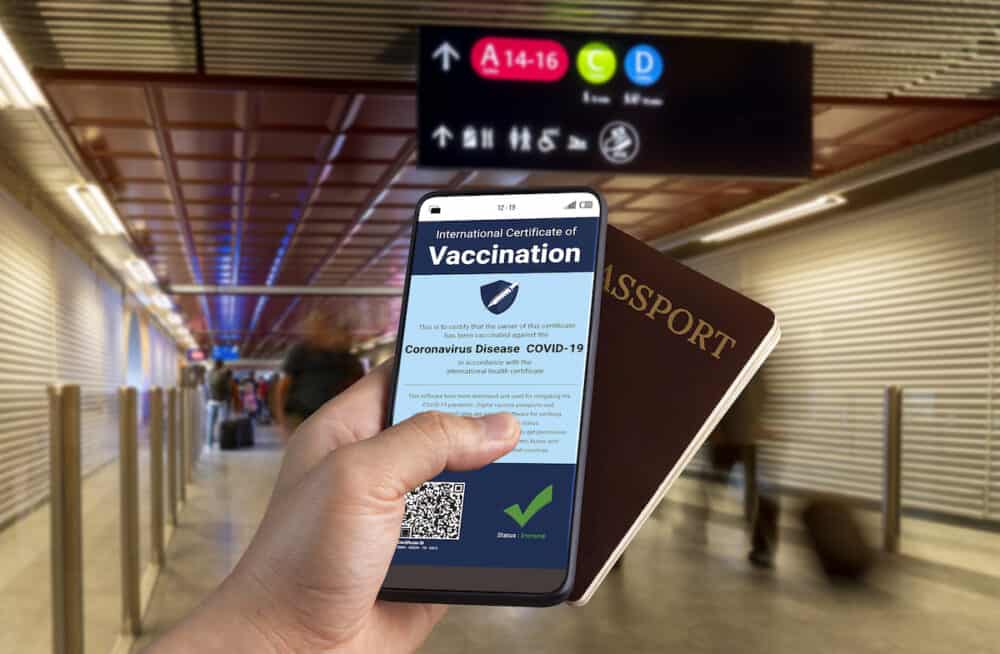
Final Thoughts: travel documents for international travel
Knowing you have all the documents needed for traveling provides a greater peace of mind and improves your overall experience. Airports are stressful, and things can get messy if you have yet to properly get everything in order.
Keep all important documents safe and back everything up with paper and digital copies. Organising travel documents before you leave is highly recommended, and keeping them close to you is a much more efficient form of travelling.
In my experience, immigration doesn’t take too kindly when waiting for you to find your passport in the three carry-on bags you’ve decided to take to Paris.
Holding up the line at customs is another spotlight you want to avoid finding yourself in! Losing any documents just to find them later in your pocket is a frustrating experience and failing to research requirements appropriately can lead to the worst situations when traveling the world.








